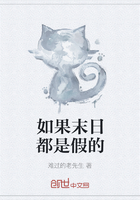January 14th, writing to Henri, the King has a mysterious word about "possibilities of an uncommon sort,"--rumors from Petersburg, I could conjecture; though perhaps they are only Turk or Tartar-Khan affairs, which are higher this year than ever, and as futile as ever. But, on JANUARY 19th, he has heard plainly,--with what hopes (if one durst indulge them)!--that the implacable Imperial Woman, INFAME CATIN DU NORD, is verily dead. Dead; and does not hate me any more. Deliverance, Peace and Victory lie in the word!--Catin had long been failing, but they kept it religiously secret within the Court walls: even at Petersburg nobody knew till the Prayers of the Church were required: Prayers as zealous as you can,--the Doctors having plainly intimated that she is desperate, and that the thing is over. On CHRISTMAS-DAY, 1761, by Russian Style, 5th JANUARY, 1762, by European, the poor Imperial Catin lay dead;--a death still more important than that of George II. to this King.
Peter III., who succeeded has lang been privately a sworn friend and admirer of the King; and hastens, not too SLOWLY as the King had feared, but far the reverse, to make that known to all mankind.
That, and much else,--in a far too headlong manner, poor soul!
Like an ardent, violent, totally inexperienced person (enfranchised SCHOOL-BOY, come to the age of thirty-four), who has sat hitherto in darkness, in intolerable compression; as if buried alive! He is now Czar Peter, Autocrat, not of Himself only, but of All the Russias;--and has, besides the complete regeneration of Russia, two great thoughts: FIRST, That of avenging native Holstein, and his poor martyr of a Father now with God, against the Danes;--and, SECOND, what is scarcely second in importance to the first, and indeed is practically a kind of preliminary to it, That of delivering the Prussian Pattern of Heroes from such a pattern of foul combinations, and bringing Peace to Europe, while he settles the Holstein-Danish business. Peter is Russian by the Mother's side; his Mother was Sister of the late Catin, a Daughter, like her, of Czar Peter called the Great, and of the little brown Catharine whom we saw transiently long ago. His Holstein Business shall concern us little; but that with Friedrich, during the brief Six Months allowed him for it,--for it, and for all his remaining businesses in this world,--is of the highest importance to Friedrich and us.
Peter is one of the wildest men; his fate, which was tragical, is now to most readers rather of a ghastly grotesque than of a lamentable and pitiable character. Few know, or have ever considered, in how wild an element poor Peter was born and nursed;what a time he has had, since his fifteenth year especially, when Cousin of Zerbst and he were married. Perhaps the wildest and maddest any human soul had, during that Century. I find in him, starting out from the Lethean quagmires where he had to grow, a certain rash greatness of idea; traces of veritable conviction, just resolution; veritable and just, though rash. That of admiration for King Friedrich was not intrinsically foolish, in the solitary thoughts of the poor young fellow; nay it was the reverse;though it was highly inopportune in the place where he stood.
Nor was the Holstein notion bad; it was generous rather, noble and natural, though, again, somewhat impracticable in the circumstances.
The summary of the Friedrich-Peter business is perhaps already known to most readers, and can be very briefly given; nor is Peter's tragical Six Months of Czarship (5th JANUARY-9th JULY, 1762) a thing for us to dwell on beyond need. But it is wildly tragical; strokes of deep pathos in it, blended with the ghastly and grotesque: it is part of Friedrich's strange element and environment: and though the outer incidents are public enough, it is essentially little known. Had there been an AEschylus, had there been a Shakspeare!--But poor Peter's shocking Six Months of History has been treated by a far different set of hands, themselves almost shocking to see: and, to the seriously inquiring mind, it lies, and will long lie, in a very waste, chaotic, enigmatic condition.
Here, out of considerable bundles now burnt, are some rough jottings, Excerpts of Notes and Studies,--which, I still doubt rather, ought to have gone in AUTO DA FE along with the others.
AUTO DA FE I called it; Act of FAITH, not Spanish-Inquisitional, but essentially Celestial many times, if you reflect well on the poisonous consequences, on the sinfulness and deadly criminality, of Human Babble,--as nobody does nowadays! I label the different Pieces, and try to make legible;--hasty readers have the privilege of skipping, if they like. The first Two are of preliminary or prefatory nature,--perhaps still more skippable than those that will by and by follow.
1. GENEALOGY OF PETER. "His grandfather was Friedrich IV., Duke of Holstein-Gottorp and Schleswig, Karl XII.'s brother-in-law;on whose score it was (Denmark finding the time opportune for a stroke of robbery there) that Karl XII., a young lad hardly eighteen, first took arms; and began the career of fighting that astonished Denmark and certain other Neighbors who had been too covetous on a young King. This his young Brother-in-law, Friedrich of Holstein-Gottorp (young he too, though Karl's senior by ten years), had been reinstated in his Territory, and the Danes sternly forbidden farther burglary there, by the victorious Karl; but went with Karl in his farther expeditions. Always Karl's intimate, and at his right hand for the next two years: fell in the Battle of Clissow, 19th July, 1702; age not yet thirty-one.
"He left as Heir a poor young Boy, at this time only two years old.
His young Widow Hedwig survived him six years. [Michaelis, ii.














